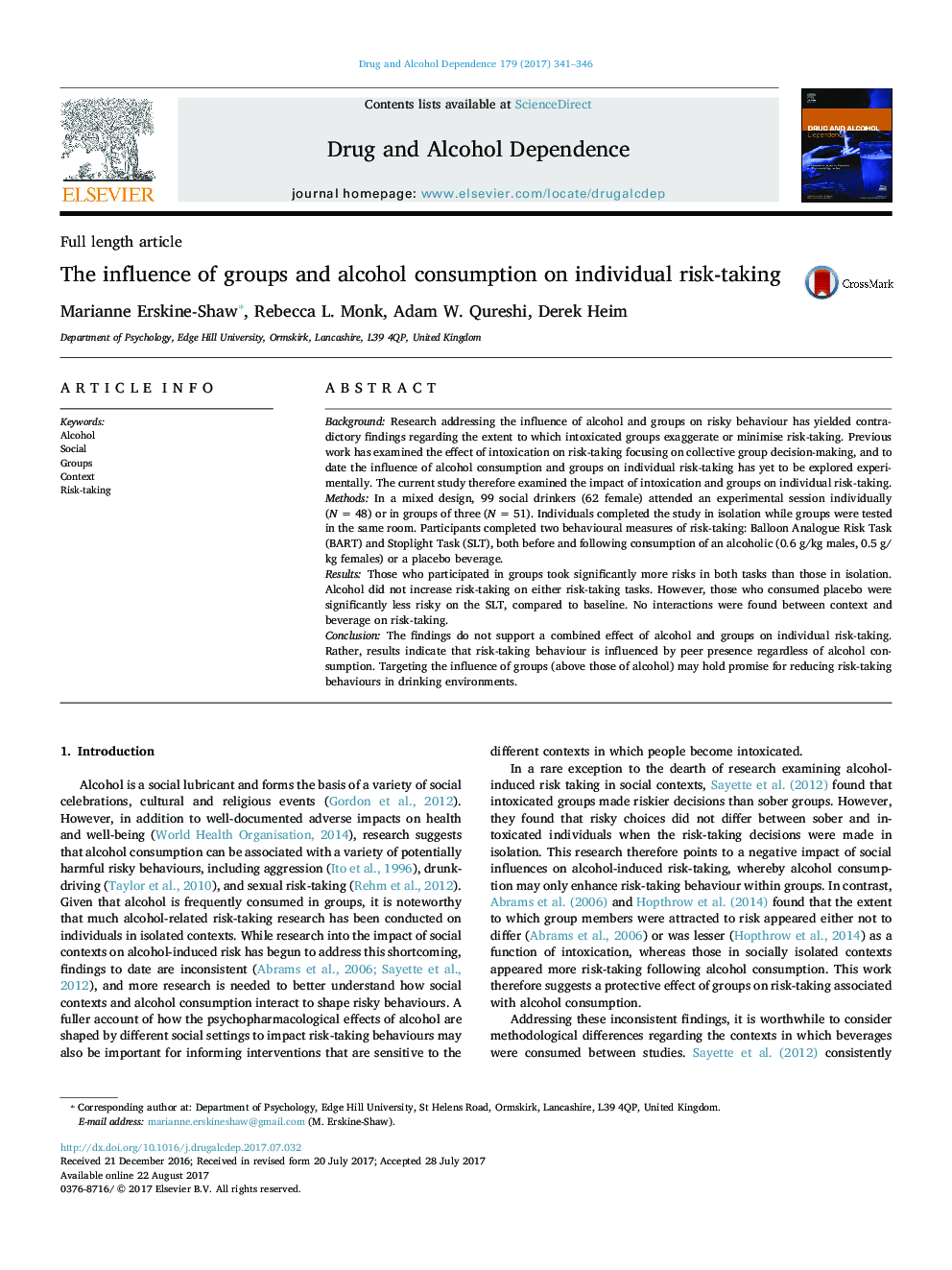| Article ID | Journal | Published Year | Pages | File Type |
|---|---|---|---|---|
| 5119962 | Drug and Alcohol Dependence | 2017 | 6 Pages |
â¢Examined the effects of alcohol on risk-taking, in isolated or group contexts.â¢Individuals are more likely to take risks when in groups.â¢Alcohol consumption does not affect individual risk-taking.â¢There is no difference in risk-taking between intoxicated and sober groups.
BackgroundResearch addressing the influence of alcohol and groups on risky behaviour has yielded contradictory findings regarding the extent to which intoxicated groups exaggerate or minimise risk-taking. Previous work has examined the effect of intoxication on risk-taking focusing on collective group decision-making, and to date the influence of alcohol consumption and groups on individual risk-taking has yet to be explored experimentally. The current study therefore examined the impact of intoxication and groups on individual risk-taking.MethodsIn a mixed design, 99 social drinkers (62 female) attended an experimental session individually (NÂ =Â 48) or in groups of three (NÂ =Â 51). Individuals completed the study in isolation while groups were tested in the same room. Participants completed two behavioural measures of risk-taking: Balloon Analogue Risk Task (BART) and Stoplight Task (SLT), both before and following consumption of an alcoholic (0.6Â g/kg males, 0.5Â g/kg females) or a placebo beverage.ResultsThose who participated in groups took significantly more risks in both tasks than those in isolation. Alcohol did not increase risk-taking on either risk-taking tasks. However, those who consumed placebo were significantly less risky on the SLT, compared to baseline. No interactions were found between context and beverage on risk-taking.ConclusionThe findings do not support a combined effect of alcohol and groups on individual risk-taking. Rather, results indicate that risk-taking behaviour is influenced by peer presence regardless of alcohol consumption. Targeting the influence of groups (above those of alcohol) may hold promise for reducing risk-taking behaviours in drinking environments.
